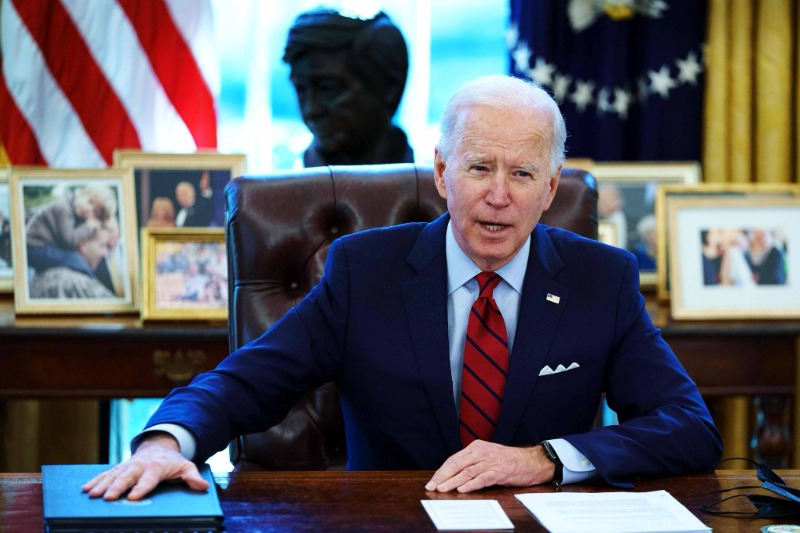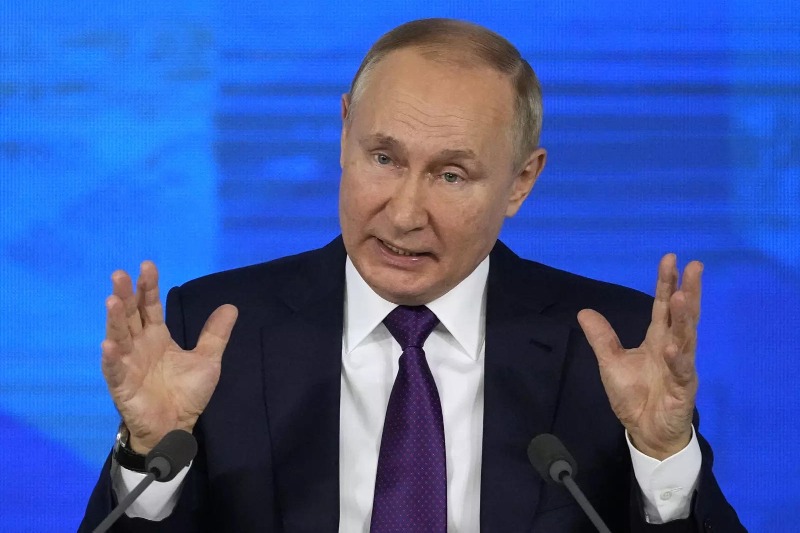
Is Biden’s visit to Saudi Arabia smooth sailing?
It went from having “no redeeming social value” to being referred to as a “strategic partner.” As a result of Russia’s invasion of Ukraine, President Joe Biden has viewed Saudi Arabia in a new light.
Relations between the United States and Saudi Arabia have worsened since President Biden replaced Donald Trump in the White House. Biden’s first trip as President to the Kingdom of Saudi Arabia this week will change all that, as he is expected to meet with Crown Prince Mohammed bin Salman (MBS).
Presidents Barack Obama and Donald Trump were mocked for bowing to the Saudi king while visiting the country. In addition, Trump created history by choosing to visit Saudi Arabia for his first presidential trip, which was marked by sword dances, flashing orbs and pomp.
For Biden, it’s all about the optics and not seeming foolish. In contrast to his predecessors, MBS has chosen to conduct a multilateral summit with regional leaders in the Red Sea city of Jeddah rather than the Saudi capital, Riyadh. This is not a state visit, and the message is obvious.
Body language, handshakes, and public pronouncements will be the most significant indicators of how the trip will be portrayed by both sides.
Here are some things to keep an eye out for while trying to gauge the current state of relations:
Pump more oil
Biden needs to portray his home trip as beneficial to the American people in the face of soaring petrol prices and inflation that hasn’t been this high since 1981. When asked about the White House’s promise to deliver outcomes for Americans, they answered, “Yes, we can.”
However, the administration is equally trying to dispel the perception that President Biden is travelling to Saudi Arabia with a request for additional oil. The White House has stated that Saudi Arabia is the OPEC oil cartel’s chair and the world’s largest exporter, but it will not be the primary focus of the trip.
White House national security adviser Jake Sullivan said on Monday that the administration’s “general perspective” is that there has to be “enough supply in the global market.”
In order to maintain output control, Gulf Arab oil producers, led by Saudi Arabia, have insisted that there is no scarcity of oil supply on the world market.
Related Posts
Recognizing leadership
A month into his administration, the White House announced that Biden would meet with Saudi Arabia’s King Salman to “recalibrate” their relationship. When it came to dealing with MBS, it was clear that he would be shunned and that only business would be conducted with the king.
In response to a question from a reporter about whether President Biden views Saudi Arabia as a “pariah,” White House press secretary Karine Jean-Pierre replied just last month that the President’s viewpoint “still remains.”
In the meantime, however, things could be set to shift. “Resetting” the relationship with Riyadh is a goal of the Biden administration, and the President’s discussions with Saudi officials would “include” MBS, according to a statement released by the administration.
As for whether or not Biden and MBS will meet one-on-one, the White House has been ambiguous.
Saudi Security
Since Biden’s administration, Saudi Arabia has been upset by what it regards as a diminishing American involvement in its security. As a result of the Saudi oil facilities being bombed in a 2019 attack that was blamed on Iran, the United States chose not to intervene.
Congress has expressed concern over Saudi Arabia’s new military ties with China.
In spite of this, the United States has recently stepped up its rhetoric in favor of Gulf security. Even so, the US has maintained an embargo on the sale of offensive weapons to Saudi Arabia since February of last year owing to the country’s ongoing conflict in Yemen.
According to US sources speaking to CNN, Saudi Arabia is looking for a sustainable strategy to deal with Iran, as well as US security pledges in the event that nuclear negotiations with Tehran fail. With the help of regional allies, Israel hopes to form a US-led Middle East air defense coalition. It’s not yet known which other countries will be taking part.
A “big declaration” on the administration’s strategy for the Middle East is due from President Biden, according to Sullivan on Monday.
Saudi-Israel Relations
Although Israel and Saudi Arabia do not have formal diplomatic ties, US sources told CNN that the relationship between the two countries has been slowly developing, and that talks are currently underway to allow Israeli commercial jets greater access to Saudi airspace.
As of late, Israel has been hoping that President Joe Biden’s visit to the Kingdom of Saudi Arabia will be a minor step toward improving relations between the two countries. To “deepen and widen” the rapprochement between Israel and Arab countries, Biden himself has his administration working.
According to state media, MBS has made it clear that he does not consider Israel as an enemy, but rather as a “possible ally, with numerous interests that we can pursue together.”
Human Rights
Officials in the Trump administration have told CNN they need to “move past” the killing of Jamal Khashoggi “for the purpose of attaining peace and security in the Middle East.”
US sources tell CNN that President Trump plans to raise the death of journalist Jamal Khashoggi directly with Saudi Arabian leader, bin Salman. Sullivan said on Monday that Biden’s human rights agenda “will be on show” while he is in the country.
Also frustrated by Yemen’s war and humanitarian calamity, the Biden administration has been lobbying with Saudi Arabia to extend a ceasefire in the nation.




